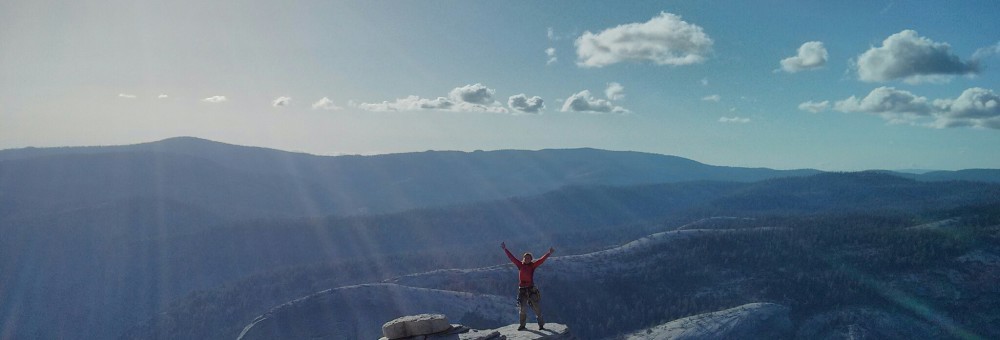




Last weekend I returned to the Sierra East Side for the first time since my accident. I drove to Yosemite with a giddiness: a happiness and excitement that drive will always elicit. Tuolumne was the same white cathedral to glaciers and air. I had missed its granite flanks, its bones, its small pink flowers. It felt so good just to see it again.
 And then we kept driving. And the happiness was bitter-sweet, because I can’t look at the domes with the same hunger. I don’t have any of the old keys. I can go as far as the parking lot for each. And that feeling breaks my heart. I am locked out of my old home and I can just look through the windows.
And then we kept driving. And the happiness was bitter-sweet, because I can’t look at the domes with the same hunger. I don’t have any of the old keys. I can go as far as the parking lot for each. And that feeling breaks my heart. I am locked out of my old home and I can just look through the windows.
We drove all the way to Convict Lake, where a paved path circles the water. It was a beautiful spot and I was happy taking my slow walk. I still have some guilt about doing this to Ben. We go to the Sierra and he watches me kick pinecones on pavement. I wish I could offer more for entertainment. I know there’s a part of him that’s waiting for me to get out of the chair and lead him back into the mountains.
We’re in the Sierra for a memorial. Maria died last September and ten of us gather near Bear Creek Spire this weekend to meet with her parents, sit around a fire, drink and remember. Seeing her parents is difficult. On Saturday they hike up to the formation, the site of her fall, as far as the snow would let them.
The rest of the group abandons a plan to climb Bear Creek Spire and leave a memento on top. Instead, we disperse to do what Maria would have wanted us to do on the East Side: to climb or hike. To enjoy ourselves in nature and get tired. I bike around Mammoth. The trail is beautiful and steep and my best climb yet. I don’t finish it — it ends at a glacial lake — but I make plans to try again. We drive to the lake instead and I want to swim. Even with my wetsuit, the water is too cold to spend more than a few minutes. We abort and try another lake.


June Lake is perfect: a bright jade and surrounded by mountains. My favorite place to swim, so far. I love feeling the water against my face. I love how sweet lake water tastes. The ocean is always less gentle with me, but lakes remind of my childhood. Swimming and biking take me out of the chair. I cherish the days I spend more time moving than sitting.


On Saturday night we gather with Maria’s parents. They tell us about their other trips. They are slowly visiting the places Maria loved, the places Maria climbed, and communing with her through the experience. They want to come back to the East Side next year and camp with us again.
I want to be there. To help them continue to say goodbye. I want to come back for myself, as well. So I need to find a new peace in the mountains. Will this get easier as I forget the old self? Will this get easier as I continue to get stronger? Or will next year look very similar to this one? I need to spend less energy trying to tell the future and more time accepting the present.
